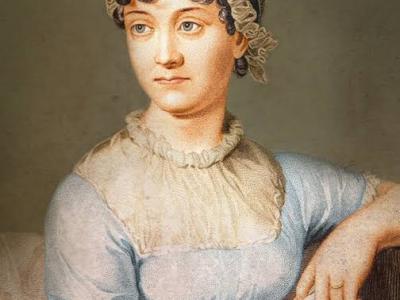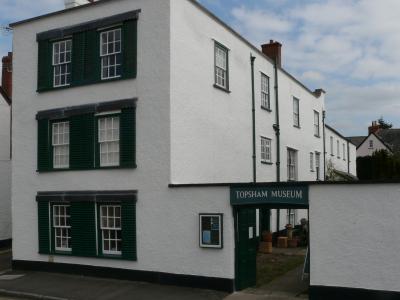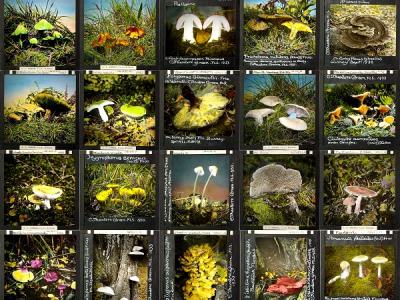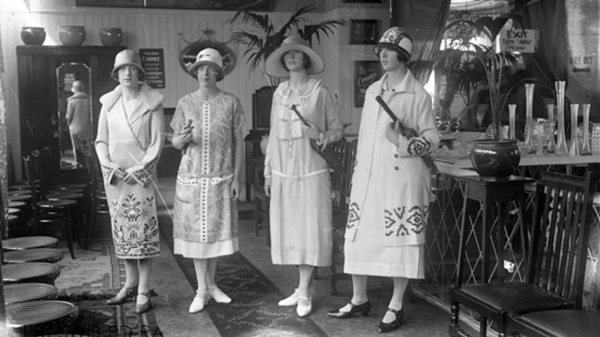Help research Plymouth and West Devon in the 1920s - The Box, Plymouth
By: Jo Clarke
Added: 03 October 2021
'Devon in the 1920s' is a research project hosted by Devon History Society in partnership with The Box, the South West Heritage Trust and the Devon Family History Society. Individual researchers and local heritage groups are currently beavering away, researching local people and places from the 1920s.
In particular, the research is focusing on:
- The legacy of the First World War
- Growing up
- Rural life
- Progress and new technologies
- Holidays and leisure
Local authority records
With a huge number of archives and artefacts in the collections, The Box is helping with this important research. Our starting point has been the official records of local authorities.
The minutes of Plymouth City Council cover decisions affecting many areas of life from housing and social care to markets and street lighting; from allotments and museums to policing and transport (See collections 185, 1718 and 3080 in our archives catalogue).
We also hold records of neighbouring local authorities such as Ivybridge Rural District Council (RDC), Plympton St Mary RDC, Tavistock RDC, and Tavistock Urban District Council, plus various parish councils including Plymstock Parish Council. For all these, there are often useful archives such as maps, plans and correspondence. The building control plans of Plymouth City Council are particularly useful for anyone looking at properties built or extended in the 1920s (see collections 1735 and 2961).
Health records at The Box
In the 1920s, the main hospitals in Plymouth were Greenbank Infirmary (1909-1929) (see collections 606, 1079, 1083, and 1130), the Royal Albert Hospital and Eye Infirmary, Devonport (see collections 606, 1366 and 2527), and the Devon and Cornwall Homeopathic Dispensary and Cottage Hospital, Lockyer Street (see collection 606).
Didworthy Sanatorium in South Brent treated patients with chest diseases (see collections 1060 and 1116), while Lee Mill had a smallpox hospital (see collection 1907). The main hospital for the Dartmoor area was Tavistock Dispensary and Cottage Hospital (see collection 1340). Mentally ill patients in the 1920s were treated at Moorhaven Hospital, also known as Blackadon Asylum, at Ugborough (see collection 988). Various private and charitable institutions also provided health care in the 1920s. A good introduction can be found in a pamphlet published in 1920 (reference 186/15/5).
Can you help?
There are plans to share the project’s research findings through exhibitions and other activities in 2025 and we'd love to see the number of researchers involved increase! If your family lived in Devon in the 1920s and you have memories to share, or you've already researched or would be interested in researching a particular topic or what was happening in your community in the 1920s, please get in touch.
Project Manager, Dr Julia Neville can be contacted via email. More information is also available from the Devon History Society website. If you'd like to research The Box's collections you can view items in our Cottonian Research Room. Advance booking is strongly recommended.
Latest news
-
Museum Opens for New Season!
Dawlish Museum
-
AGM 2025
Dawlish Museum
-

The David Clement Memorial Lecture: William S Lindsay, shipowner, politician and envoy
Topsham Museum
-

Secret Gardens Programmes on Sale now!
Topsham Museum
-

The Box wins second Muddy Stilettos award
The Box, Plymouth
-

Whiteway's Cyder in the 1920s
Whimple Heritage Centre
-
.jpg&w=400&h=300&zc=1)
Groundbreaking art exhibition arrives at The Box
The Box, Plymouth
-

Open call for artists to work on Changing Stories: Connecting and Collecting with Exeter’s Communities
Royal Albert Memorial Museum and Art Gallery
-
Summer season opening
Totnes Museum
-

Save the Date! Secret Gardens of Topsham, Sunday 8 June 2025
Topsham Museum
-

Full Ahead Lecture Season 2025: Jane Austen and her South West Connections
Topsham Museum
-

Art Exhibition: David Robinson, artist, accountant and sailor
Topsham Museum
-

Full Ahead Lecture Season 2025
Topsham Museum
-

Repairs to the Museum
Topsham Museum
-

New Artist Opportunity from Exeter’s Royal Albert Memorial Museum and Art Gallery
Royal Albert Memorial Museum and Art Gallery










